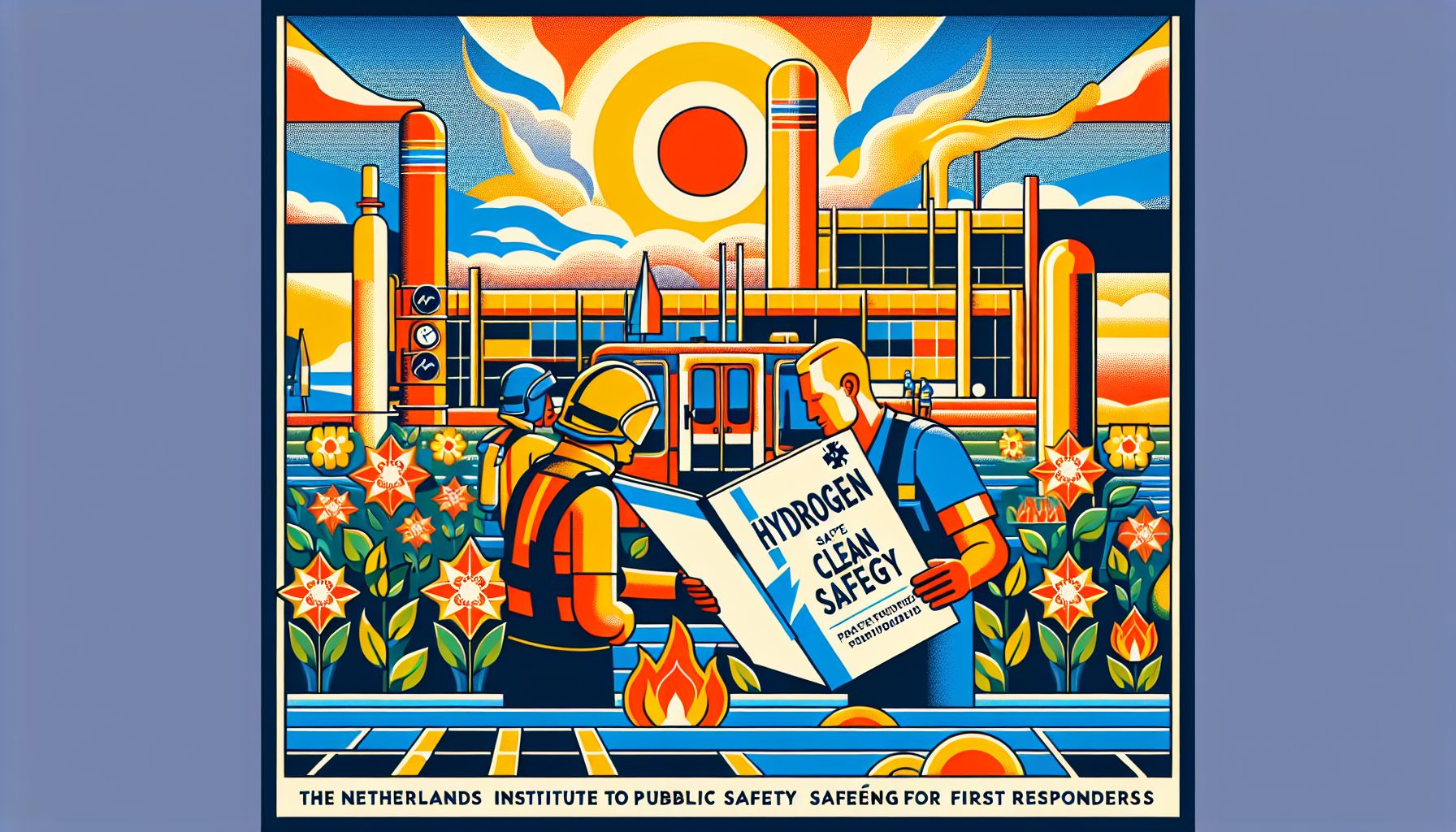Netherlands Institute for Public Safety Issues Hydrogen Safety Toolkit for First Responders

NIPV publishes a guide on hydrogen safety for emergency services to ensure safe clean energy practices.
A Pioneering Safety Resource
In an effort to fortify the safety protocols associated with hydrogen, a clean energy source with significant potential to reduce global carbon emissions, the Nederlands Instituut Publieke Veiligheid (NIPV) has taken a proactive step. Recognizing the nuances and risks inherent to hydrogen use, NIPV’s comprehensive toolkit is designed to equip first responders and fire department instructors with the knowledge to manage hydrogen-related incidents safely and efficiently. This initiative underscores the institute’s commitment to facilitating a safe energy transition, which aligns with their focus areas for 2023, including climate adaptation and information-driven security.
Hydrogen’s Role in a Sustainable Future
Hydrogen is increasingly viewed as a cornerstone of sustainable energy strategies aimed at reducing the impact of climate change. However, its volatile nature poses unique challenges in terms of storage, transportation, and usage. NIPV’s toolkit provides best practices and protocols, ensuring that those on the front lines are prepared to handle any potential emergencies effectively. This guidance is especially crucial as the Netherlands and other nations invest in hydrogen infrastructure to meet their renewable energy goals.
NIPV’s Expertise and Reach
Based in Arnhem, with a logistics center in Zoetermeer, NIPV serves as a pivotal center of expertise in contingency planning, crisis response, and firefighting strategies. While the operational domain of NIPV is primarily the Netherlands, its influence extends beyond national borders, with English translations of selected case studies, research reports, and publications available to an international audience. The toolkit is a testament to NIPV’s role as a leader in safety and resilience, ensuring that knowledge is shared to promote widespread adoption of best practices in hydrogen safety.
Collaborative Efforts and International Recognition
The release of the hydrogen safety toolkit is not an isolated endeavor. It reflects a broader movement within the Netherlands to prioritize safety and accuracy in emerging technological fields. Organizations like the NMi, Netherlands Measurement Institute, headquartered in Delft, have been instrumental in certifying and ensuring the precision of commercial measuring instruments, a key factor in hydrogen safety. The NMi’s emphasis on impartial testing and certification complements the safety objectives set forth by NIPV’s new guidelines.
Conclusion: Safety as the Foundation for Innovation
As the world pivots towards green energy, the NIPV’s hydrogen safety toolkit marks a significant stride in marrying innovation with safety. By providing first responders with the necessary tools and knowledge, NIPV not only contributes to the safe implementation of hydrogen energy but also sets a precedent for responsible energy transition globally. As hydrogen technology continues to evolve, the importance of such safety resources will only increase, ensuring that the path towards a cleaner future is as secure as it is ambitious.

